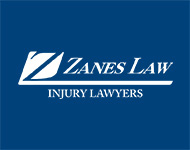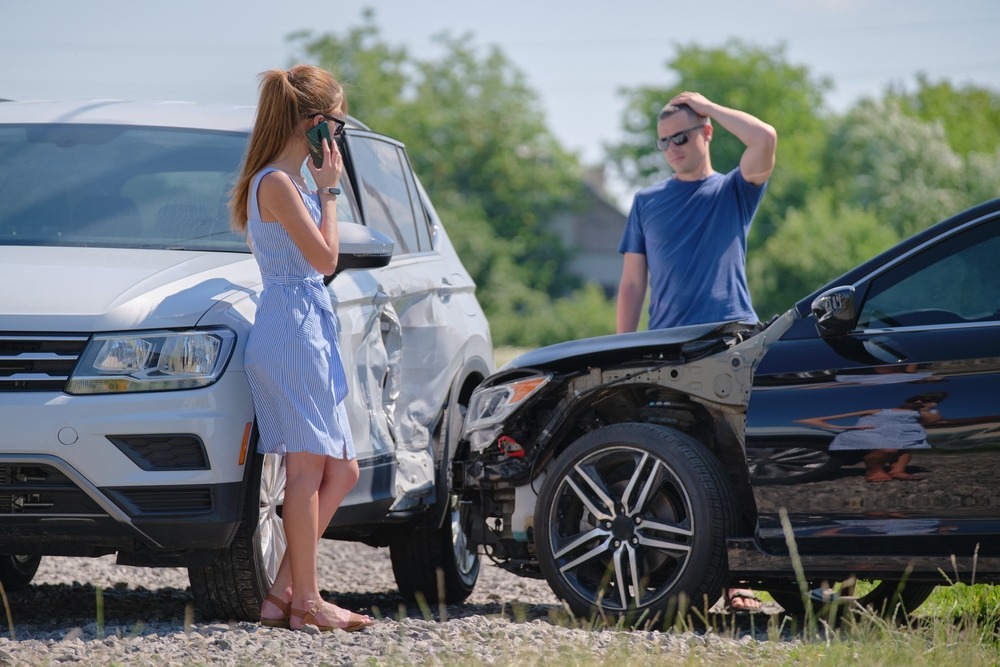![]() Contact Us (866) 499-8989
Contact Us (866) 499-8989
What Compensation Is There for PTSD After a Car Accident?
- What Is the Average Settlement Amount for PTSD After a Car Accident?
- Insurance Company Claims for PTSD After a Car Accident
- Factors that Can Impact a PTSD Claim After a Car Accident
- Signs of PTSD
- PTSD Triggers Affecting Your Quality of Life
- How Your Disorder Has Impacted Your Ability to Work
- How to Include PTSD in Your Personal Injury Claim
- Contact the Car Accident Lawyers at Zanes Law
- Home
- FAQs
- Car Accidents
- What Compensation Is There for PTSD After a Car Accident?
After a serious automobile accident, you may seek damages for post-traumatic stress disorder (PTSD). Related costs, including those for physical therapy, prescription drugs, and mental health treatments, may also be recoverable damages in your case.
However, you must demonstrate that you were harmed due to another party’s negligence to receive compensation. You must also establish that you actually have PTSD. This is when things can get challenging. An experienced Arizona car accident lawyer can help you seek damages for PTSD and other consequences of the crash.
What Is the Average Settlement Amount for PTSD After a Car Accident?
Since each person experiences post-traumatic stress disorder following auto accidents differently, there is no standard compensation amount. Your settlement amount is influenced by how your PTSD presents itself, as well as the symptoms you have.
Compensation for PTSD could be included in a settlement, along with other elements like pain and suffering. Evaluating several factors is necessary before estimating a possible recovery amount.
A settlement or jury award is never guaranteed in any claim. However, if the PTSD condition is supported by strong expert testimony in these situations, you could obtain a substantial amount.
For a free legal consultation, call (866) 499-8989
Insurance Company Claims for PTSD After a Car Accident
Despite an accident’s physical and mental repercussions, insurance adjusters will work tirelessly to reject the claim and keep more money in their company’s pocket. In the eyes of the insurance adjuster, PTSD is sometimes easy to ignore because there isn’t any obvious bodily harm.
The burden of proof is placed on people living with PTSD because insurance adjusters are constantly on the lookout for medical fraud. Any discrepancies in your medical history may give the insurer a reason to reject your claim. Unfortunately, the expense of treating PTSD isn’t as easily overlooked.
Those who have PTSD after a car accident can have to pay for counseling and medication out of their own pockets if their insurance claim is denied. However, most insurance adjusters do not want to deal with the expense of litigation and are generally more cooperative when a personal injury lawyer is involved.
Factors that Can Impact a PTSD Claim After a Car Accident
Specifics in your case can impact your car accident settlement. Your role in the crash and the injuries you sustained are the primary factors to be considered in your claim.
The more severe your physical injuries are, the greater your financial recovery should be. For example, an injury victim who lost a limb in a car crash is likely to collect more than someone who suffered a broken wrist.
Likewise, more severe cases of PTSD will garner a larger settlement than cases with less severity.
These factors can influence your financial recovery or settlement:
- Whether you share liability in the collision
- The specifics of your diagnosis and long-term prognosis
- The physical injuries you sustained in the accident and the resulting psychological trauma
- Any pre-existing conditions affecting your mental or physical health
- Your ability to function in your daily routines and activities
- Your ability to continue working
- The impact on your relationships with your loved ones and friends
Even though PTSD is a hidden injury, its negative repercussions can be as severe and real as physical wounds. A personal injury attorney may be able to assist you in obtaining fair compensation for this life-altering condition.
Click to contact our personal injury lawyers today
Signs of PTSD
PTSD is thought to occur in nearly 40% of motor vehicle accident survivors, according to National Institute of Mental Health studies. Following a car accident, it’s common to experience a range of feelings, including shock, remorse, grief, helplessness, confusion, and dread.
These signs could appear in any combination as your body naturally reacts to a traumatic incident in your life, and they should gradually disappear in those who don’t have PTSD.
However, when these feelings persist and you exhibit some of the following symptoms, you may have PTSD:
- Unwanted or intrusive painful memories of the event
- Nightmares
- Emotional trauma following exposure to unpleasant memories
- Aggression or irritation
- Difficulty experiencing good feelings
- Putting too much responsibility on oneself or others for the trauma
- A physical reaction to reminders of the event
- Feeling alone
- Trouble sleeping
- Inability to remember important aspects of the accident
- Reduced interest in activities
- Avoiding activities connected to the accident due to flashbacks
- Increased startle response
- Excessively pessimistic beliefs and presumptions about oneself or the world
- Damaging behaviors or risky activity
- Difficulty paying attention
After a serious car accident, you may experience an increase in symptoms or the intensity of your symptoms as time passes. If you suspect you are experiencing symptoms of PTSD, it’s important to seek medical treatment promptly.
The psychological aftermath of a car accident can be managed with help from your physician or mental health professional. A mental health condition can greatly impact your life, and you are legally entitled to pursue both physical and psychological damages.
Complete a Free Case Evaluation form now
PTSD Triggers Affecting Your Quality of Life
Accidents involving rollovers, T-bone crashes, and collisions involving pedestrians can be especially harrowing experiences that often have long-term effects on the survivors. The intense fear of being trapped in an uncontrollable vehicle and feelings of panic around threats to life and limb can remain in the minds of accident victims long after the physical scars have healed.
In addition, many accident survivors may re-experience these intense moments as flashbacks or vivid nightmares when they least expect it. These flashes can cause emotional distress, extreme anxiety, and depression.
Survivors of serious accidents may experience a range of PTSD-related symptoms, such as hypervigilance, avoidance issues, and night terrors. In some cases, these symptoms may manifest months or even years later, providing yet another reminder of a traumatic moment from the past.
How Your Disorder Has Impacted Your Ability to Work
Post-Traumatic Stress Disorder (PTSD) can impact a person’s ability to maintain employment. For some, the symptoms of PTSD can be so severe that they can no longer perform their job at the same level as before they experienced the trauma.
This may mean difficulty driving or operating machinery, a lack of concentration and focus, fatigue due to interrupted sleep patterns, and increased anxiety in certain environments. These symptoms can be further exacerbated if your job requires you to re-experience your traumatic event.
In settlement negotiations related to your PTSD, it is important to consider changes to your employability and lost wages associated with the condition’s impact on your productivity.
How to Include PTSD in Your Personal Injury Claim
Don’t neglect to address the psychological aftermath of a car accident. You should get a medical diagnosis if you think you may have PTSD. You can then bring legal action against the driver who caused the collision.
These actions may safeguard your right to financial compensation if you have PTSD symptoms or other health issues:
- As soon as possible, seek medical attention for all bodily and mental ailments by visiting a healthcare provider.
- As quickly as possible, report the collision to the responsible insurer. A letter of representation will be sent on your behalf if counsel represents you.
- Keep all documents about your case, such as a list of your prescription drugs, medical history information, and other supporting documentation.
- Consider hiring a personal injury attorney from our team who can aid you in the remaining steps of the claims procedure.
Contact the Car Accident Lawyers at Zanes Law
If you’ve experienced PTSD following a traffic accident, you are not alone. The psychological effects of a collision can disrupt your daily life and affect your ability to function. Your injuries are valid, but they are invisible. So, it’s important to take steps to document an emotional injury like PTSD.
In most cases, if you have developed a mental health condition following a car accident, you will be eligible for compensation from the at-fault driver’s insurer. Don’t let an insurance company settle for less than you deserve. The experienced car accident attorneys at Zanes Law can help you recover a settlement that fully addresses your PTSD.
For help with your car accident claim, contact us for a free case evaluation.
Call or text (866) 499-8989 or complete a
Free Case Evaluation form
 Why Bruce Jenner’s Accident is a Lesson for ALL Drivers Out There
Why Bruce Jenner’s Accident is a Lesson for ALL Drivers Out There
Every media outlet has a scope on the recent and fatal Bruce Jenner car crash. Many accounts have recalled the incident in varying detail but none look promising for any party involved including the
 Phoenix Light Rail Crash
Phoenix Light Rail Crash
A very major and scary crash recently closed down a major Central and Indian School Road intersection. Although the crash has long been cleared since Saturday, the collision between a
 Tracy Morgan Lawsuit Finally Settles
Tracy Morgan Lawsuit Finally Settles
Many fans of the famous (now ended) sitcom, 30 Rock, anxiously followed the news after beloved actor and comedian Tracy Morgan was involved in a trucking accident. A Walmart tractor-trailer
 And Then It Happens To You… A Car Accident.
And Then It Happens To You… A Car Accident.
An accident victim who was injured in a car accident in Tucson, Arizona describes her experience in this guest post. You hear about them all the time. You have even witnessed some right in
Wrongful Death Blog Posts:
Receive a Free, No-Obligation, Case Evaluation Now



